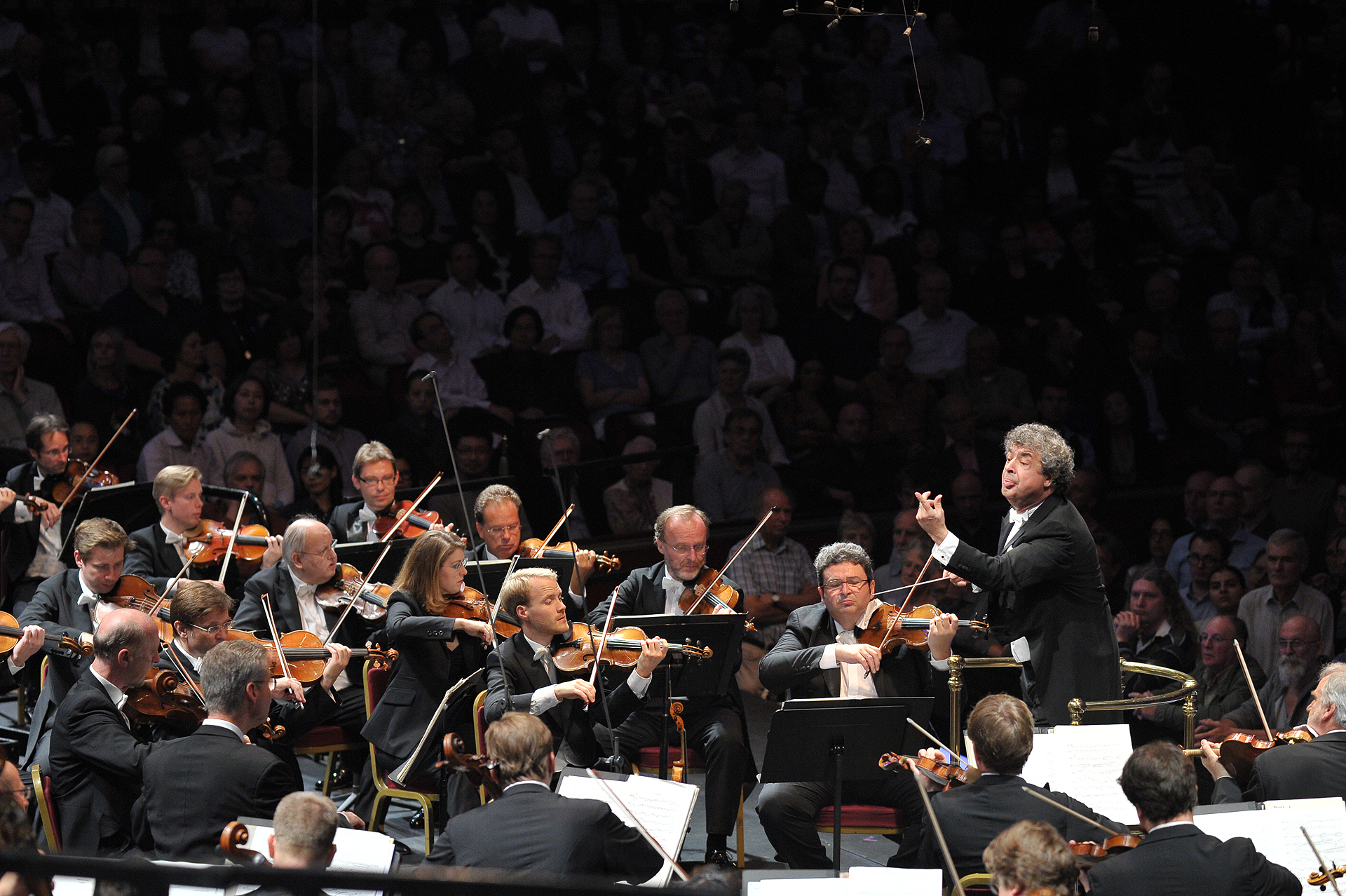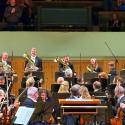Every Proms season needs a late-romantic rarity to envelop its audience in a bewitching spider-web of sound. This year’s candidate was of more than passing interest, the incandescent Second Symphony of Franz Schmidt, scion of the Austrian Empire – born in what is now Bratislava, three-quarters Hungarian, an embattled cellist in the Vienna Philharmonic during Mahler’s tenure. The orchestra now wants to do him proud again, thanks to the very centred championship of Semyon Bychkov. And Schmidt’s music has the virtue of not being over-familiar to the Viennese players, unlike Brahms’s.
Let’s get that out of the way first. Rarely has the “free but happy” surge at the beginning sounded more placid. Bychkov, phrasing with his usual elegance and a stick technique that is always a joy to watch, seemed to want the sometimes too homogenous woodwind to play on the edge of audibility, which may work in Vienna’s Musikvereinsaal but failed alongside soft-edged ensembles to fail to pierce the veil of the Albert Hall, so successfully penetrated this year by most visiting orchestras. There were the usual pleasures of the ideal VPO sound for Brahms – the dark-woods horn at the heart of the first movement, the rich crescendos, the setting-sun flurries of the epilogue; but it all sounded far too complacent (pictured below: spot the woman and a half - though there are a few more now).
Schmidt’s forces are larger – eight horns, five clarinets, a very effective tam-tam struck at key moments – and what in the Brahms had seemed like torpor here came across as glowing restraint. The kneejerk reaction has been to compare him, not usually favourably, to Richard Strauss, and the romantic landscapes of the first movement, from mountain spring to rocky heights and high meadowlands, sometimes suggested the world of Strauss’s fairy-tale opera Die Frau ohne Schatten – but that was just an idea in 1911.
The complexity, held within clear symphonic boundaries with every detail seemed to shine through, needed its opposite. And Schmidt provides that with the simple, but not commonplace, Allegretto woodwind theme followed by ten varations which bubble up towards a proud, beaten-bronze climax before moving on to a waltz-scherzo and trio. Bychkov’s pacing was immaculate, his lilt in the last two variations characterful but never too impetuous.
This hard-to-please orchestra seems to like BychkovSchmidt manages to crown this masterly symphony with a “peaceful and flowing” finale, occasionally just a little troubled but leaving us in no doubt that its destination will be a glorious one. While strings had often matched for other-worldliness the achievements of their counterparts in the St Petersburg Philharmonic earlier in the week, the peroration was the brass’s big moment, and it sounded simply gorgeous, with the most sophisticated of trumpet lines and richly upholstering horns. Schmidt gives Mahler and Bruckner a run for their money with his brilliantly sustained chorale and surprise ending; this interpretation did him proud.
I was hoping the encore would be the ardent Intermezzo from Schmidt’s fine opera Notre Dame, which goes even further than the climactic second-movement variation and which may get an airing here after such championship (how about it, Chelsea Opera Group?). Instead Bychkov and the Viennese chose a bridge between the second of the St Petersburg Philharmonic’s concerts and The Dream of Gerontius tonight. What other than “Nimrod” from the “Enigma” Variations, unfurled with total naturalness and just a little in reserve from the ever-impressive Bychkov. This hard-to-please orchestra seems to like him, and we should adore him for bringing the Schmidt symphony to London.
Read theartsdesk's reviews of other concerts from the BBC Proms 2015














Add comment